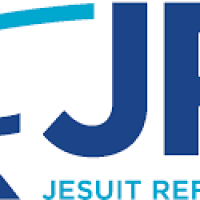The Government of Uganda in 2005 operationalized the externalization of labour programme as a short-term intervention to provide Ugandan youths with opportunity to seek employment abroad. In this regard, the Ministry of Gender, Labour and Social Development is responsible for promotion of fair recruitment of Uganda Migrant workers through licensing of Private employment Agencies, and accreditation of institutions which provide pre-departure orientation and training to migrant workers.
Many Ugandan migrant workers have migrated to the Middle East, with some being engaged in occupations other than domestic work. Migrant domestic workers from Uganda undertake a mandatory 14-days predeparture orientation and training. However, the current curriculum does not adequately consider training for job categories other than domestic workers. As a result, some migrant workers have faced several challenges including contract substitution, unfair salary deductions, non-payment of wages, confiscation of personal documents, working long hours, no rest day, sexual harassment and other various labour rights violations.
In order to appropriately prepare all migrant workers, there is need to develop a comprehensive pre-departure orientation and training curriculum. This will also entail having an assessment and certification for trained migrant workers, the development of a ‘Migrant Workers Information Handbook’ and the need to conduct Training of Trainers (ToT) for trainers on the curriculum to ensure effective dissemination and execution of the developed curriculum.
It is against this background that the ministry with the support of the ILO is seeking the service of national consultant to revise and expand the scope of the pre-departure orientation and training curriculum for migrant workers in Uganda.
- Scope of work
The overall objective of this assignment is to expand the scope of the predeparture orientation and training program for migrant workers by providing migrant workers with essential skills, knowledge, and resources to ensure their successful integration into foreign labour markets and to promote their welfare and protection.
More specifically,
- To ensure that the content of the existing Pre-departure Orientation and training materials are comprehensive enough to cater for migrants in different occupations and reflect current trends and best practices in migration governance in accordance with national and international standards.
- Develop migrant workers information handbook.
- To enhance the delivery methods and materials to ensure they are engaging, accessible, and effective for all participants.
- Based on the revised Predeparture Orientation and training materials provide Training of Trainers.
- Detailed tasks
Needs Assessment
- Conduct an in-depth analysis of the current pre-departure training landscape in Uganda.
- Identify gaps and challenges in the existing orientation programs and compare with good practice countries.
- Conduct a stakeholder’s consultative workshop to engage participants from government agencies, migrant workers, training institutions, private employment agencies and employers, to gather insights at both National and regional level to provide their insights.
Curriculum Development
- Design a comprehensive curriculum covering legal rights, cultural practices, financial literacy, and health and safety.
- Integrate modules on communication skills, stress management, and conflict resolution.
- Ensure the curriculum is adaptable to various destination countries.
- Conduct a validation workshop at the National level incorporation stakeholder’s input for the final curriculum development document.
Training Delivery
- Develop training materials, including migrant workers handbook, manuals, videos, and interactive tools.
- Establish partnerships with local training institutions and NGOs to facilitate program delivery.
- Conduct pilot training sessions and collect feedback for program refinement.
- Conduct TOT for trainers.
Monitoring and Evaluation
- Implement a robust monitoring and evaluation framework to assess program impact.
- Adjust and improve the training program based on feedback and outcomes.
- Expected deliverables
The estimated required number of days is 40-45 days within the period of four months
- Inception Report- 1 week from signing of the contract
- A detailed report summarizing the findings of the review and analysis, including identified gaps and recommendations for improvement as well as stakeholder consultation. 4 weeks from signing of the contract.
- A draft version of the revised Predeparture Orientation and Training Program, including updated materials and delivery methods. 8 weeks from signing of the contract.
- A report summarizing the results of the pilot testing phase, including feedback from participants and recommendations for final adjustments. 11 weeks from signing of the contract
- A comprehensive and finalized version of the revised Predeparture Orientation and Training Program, ready for implementation.
15 weeks from signing of the contract
- Migrant workers handbook. 18 weeks from signing of the contract
- Assessment tool for each training module developed that will guide the certification process. 18 weeks from signing of the contract
- Training report from the TOT. 18 weeks from signing of the contract
- Reporting arrangements
The consultant will report to the Commissioner for Employment Services – MGLSD and work closely with the Head Counselling and Guidance – Focal point personnel and the ILO project technical focal point personnel to oversee the progress of work done.
- Detailed qualifications, experience and skills required
- Master’s degree in Migration Studies, Labour Economics, Social Sciences, Public Policy, International Relations or related fields.
- More than 10 years’ experience in labour migration, employment policy, or reintegration programming.
- Proven track record in developing national frameworks, strategies, or policies.
- Strong knowledge of Uganda’s labour migration context and international frameworks (e.g., ILO, IOM, AU frameworks).
- Excellent analytical, facilitation, and writing skills.
Prior experience in developing and assessing donor projects will be an added advantage.
The submitted proposal from the prospective consultants will be evaluated as per the criteria set below.
Evaluation Criteria/profile of a consultant
Maximum score
A minimum of advanced university degree in Migration Studies, Labour Economics, Social Sciences, Public Policy, International Relations or related fields 10
Proven experience in carrying similar assignments before (within the last 5 years) verified by specific description in his/her profile and sampled work annexed.
The focus will be on relevance, reporting skills and quality of past work and nature of clients and topics covered. 20
Clear understanding of pre-departure training especially in the Ugandan context. 5
Applicant demonstrates (via submitted technical proposal) their clarity on understanding the objectives and scope of the assignment through detailed descriptions of the assignment its objectives and relevance to the intended 20
Methodology for undertaking a needs assessment, consultative processes and approach, and analytical framework. 10
Methodology for development of the curriculum 15
Methodology for delivering a Training of Trainers, and using the ToT findings to finalise the curriculum 15
A clear Monitoring and Evaluation framework 5
Total 100
- Indicators for evaluation of outputs
Indicators for evaluation of outputs (i.e. timing, achievement of goals, and quality of work)
- Inception Report – 1 week from signing of the contract
- A detailed desk review report – 4 weeks from signing of the contract
- A draft version of the revised Predeparture Orientation and Training Curriculum – 8 weeks from signing of the contract
- A final report incorporating stakeholders’ comments including those from ILO and MGLSD – 11 weeks from signing of the contract
- A report summarizing the results of the pilot testing – 15 weeks from signing of the contract.
- A comprehensive and finalized version of the revised Predeparture Orientation and Training Program – 18 weeks from weeks from signing of the contract.
- Migrant workers handbook – 18 weeks from weeks from signing of the contract.
- Training report from the ToT – Program – 18 weeks from weeks from signing of the contract.
- Payment terms











